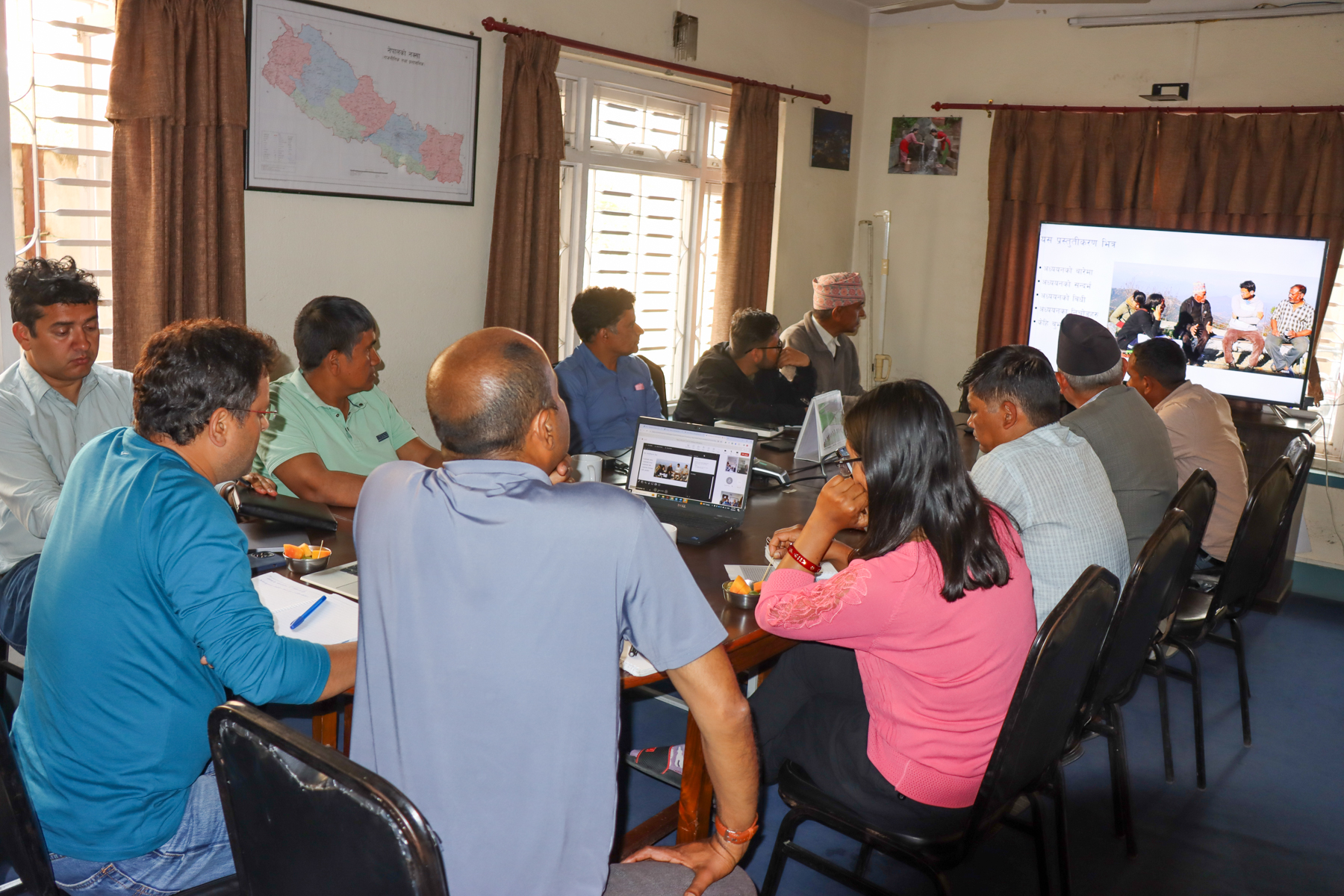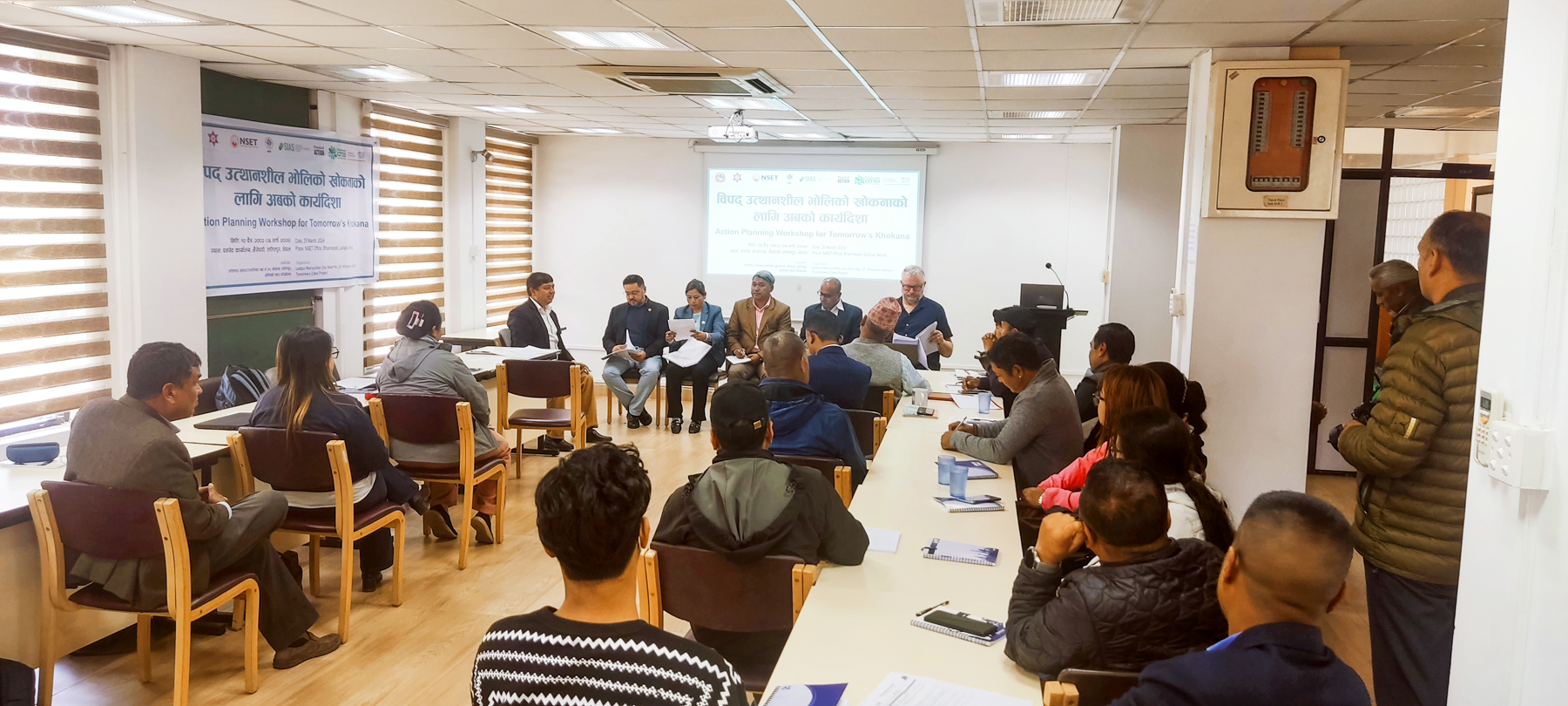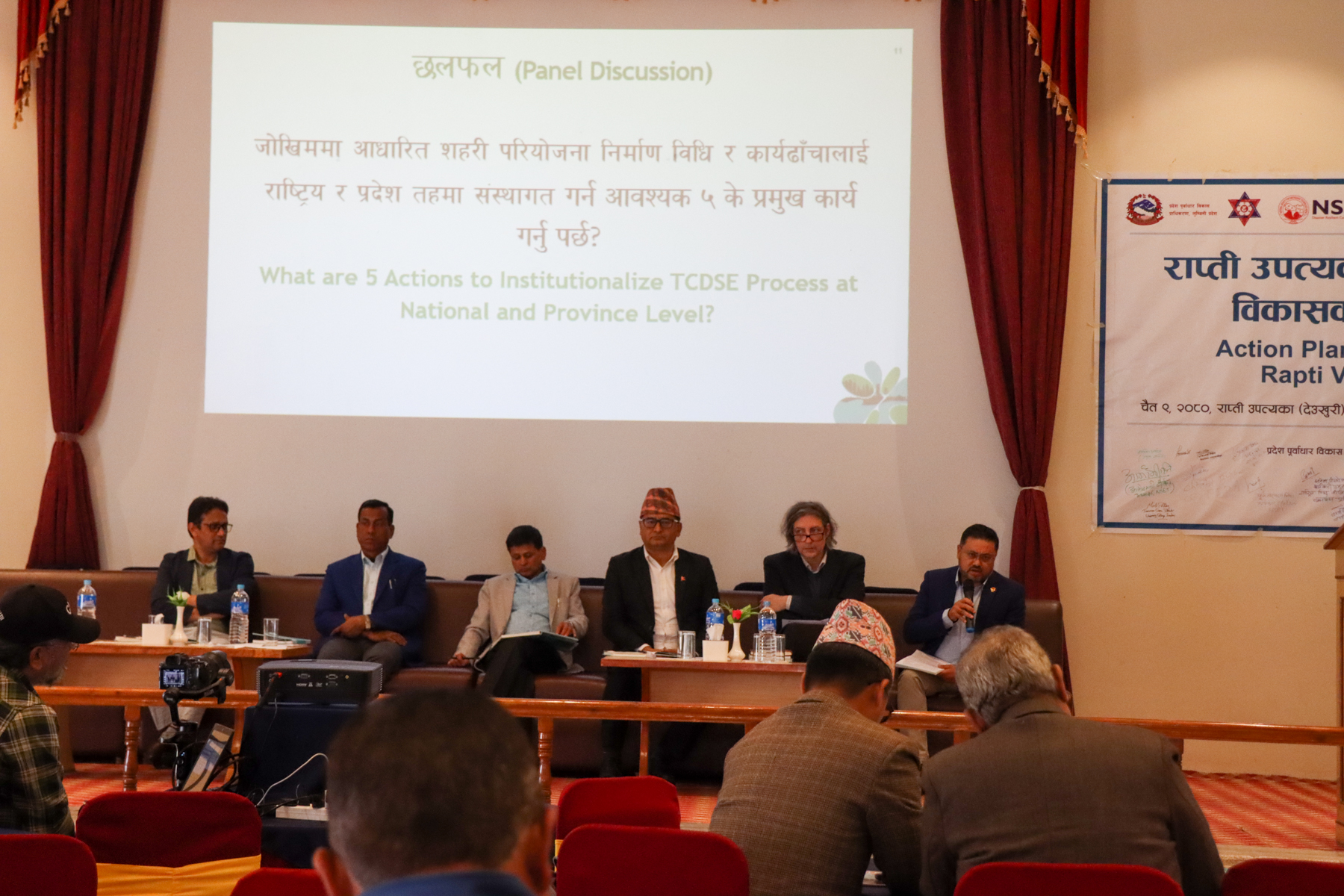28th February, 2024
Southasia Institute of Advanced Studies (SIAS), together with Aria Solutions, organized a national-level stakeholder dialogue on Digital Technology for Women Farmers and Entrepreneurs in Nepal on February 28, 2024. This event was co-organized as a part of the “Co-producing a shock-resilient business ecosystem for women-engaged enterprises in Nepal (CREW)” project, brought together diverse stakeholders, including representatives from policymakers, the banking sector, digital service providers, researchers, academicians, development practitioners, and bilateral institutions. Besides sharing the learnings of the CREW project, the event facilitated discussions among these diverse stakeholders regarding the prospects and challenges of advancing digital initiatives for empowering women farmers and entrepreneurs in the Nepalese context.
Following the welcome remarks by Ms. Gyanu Maskey, Researcher at SIAS and an introduction session, Dr. Maniram Banjade, Principal Investigator of the CREW project, briefly presented the objectives of the CREW project, methodologies adopted and activities undertaken in this action research project. Following this presentation, Hon. Dr. Bimala Rai Poudyal, Member of Parliament Upper, shed light on women’s contribution to Nepal’s agriculture sector and acknowledged that digital technology could play a pivotal role in empowering women farmers. Dr. Poudyal specifically stressed that human-centric digital technology, with effective integration of a gender-sensitive approach and assurance of data security, could effectively improve women’s access to information and extension services and contribute to women’s economic empowerment.
Next, Mr. Bibhor Kayastha, Founder Director of Aria Solutions, highlighted major technological interventions, challenges encountered and key learning gained in implementing digital technologies co-developed under the CREW project for economically empowering women farmers and their cooperative. Subsequent was the panel discussion in which three panelists: Mr. Rajan Man Bajracharya – Founder MD of Geokrishi app, Mr. Arvind Shah – Co-founder of Khalti and Sparrow SMS, and Dr. Smrittee Panta – Associate Academic Director and program head of BHM/BHTM Little Angles’ College of Management, shared their insights, experiences and research findings in relation to technological advancements in Nepal’s agriculture sector. The panel discussion was jointly moderated by Dr. Maniram Banjade and Mr. Bibhor Kayastha.
During the panel discussion, Mr. Bajracharya elaborated on the services provided by Geokrishi app, emphasizing its usefulness, particularly for the women farmers and stressed the need for increasing digital literacy to ensure digital inclusion. Likewise, Mr. Arvind Shah outlined the role of Khalti as a payment enabler and explained although not directly involved in digitization of the agriculture sector, they could collaborate with parties that work in the sector for reliable and efficient payment system. Dr. Panta shared her research findings indicating a positive attitude among women farmers and entrepreneurs towards adopting digital technology. She highlighted that user-friendly software, time and resource availability, compatibility of the applications with the smartphones, and the societal perception of women, mostly marginalized women using digital applications influence the adoption of digitech among women and emphasized the need of specific guidance for translating women and youth-friendly, policies into practice.
In the Q&A session, participants highlighted importance of women-friendly extension service delivery mechanisms, investment in infrastructural development for technological advancement, integrating local knowledge and practices for application development, ensuring the security of user data, development of demand-driven software and collaboration between private and public sectors, NGOs, and INGOs to expedite the use, expanding the potential, reducing the duplications and improving the efficacy of digital applications. Lastly, Dr. Dil Khatri, executive director of SIAS summarized the overall discussion and emphasized the need to bridge the gap between innovation and adoption of digital technology while ensuring its equitability and inclusivity. On behalf of the organizer team, Dr. Khatri expressed gratitude to Hon. Dr. Bimala Rai Poudyal, the panelists, and all the participants for their valuable presence and for active engagement in the discussion.




